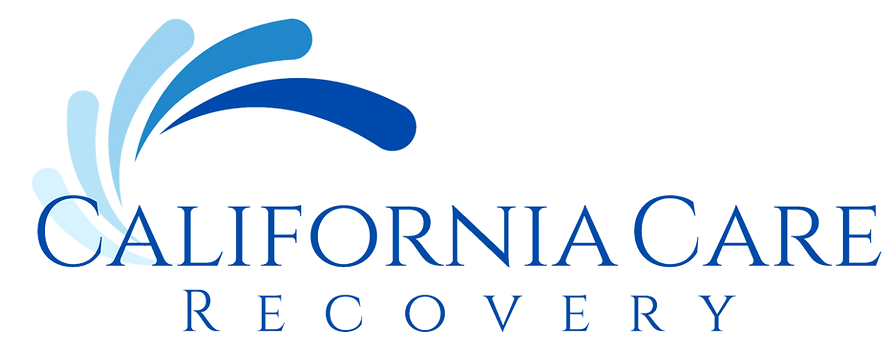A Family’s Guide: How to Help a Loved One Get Treatment in Orange County Today
Understanding Mental Health Crises
A mental health crisis refers to any situation where someone’s behavior puts them at risk of harming themselves or others, or prevents them from taking care of themselves properly. These emergencies require immediate attention and action to ensure safety and prevent things from getting worse.
Recognizing the Signs
Knowing the warning signs can make a significant difference in getting help on time and avoiding a potentially tragic outcome. Here are some critical indicators to watch out for:
- Threatening or talking about harming themselves or others
- Extreme mood swings or sudden changes in personality
- Withdrawing from friends, family, and regular activities
- Struggling to do daily tasks like eating, bathing, or working
- Using more drugs or alcohol as a way to cope
- Feeling paranoid, hearing voices, or seeing things that aren’t there
- Acting recklessly without caring about the consequences
The Impact of Substance Use
Things get more complicated when substance use and mental health issues come together. This combination creates a difficult cycle where each problem makes the other worse—substance use may temporarily hide mental health symptoms while also making the underlying condition worse. For example, someone dealing with depression might turn to alcohol for relief, only to find their depressive symptoms getting deeper.
Addressing Co-Occurring Disorders
Dual diagnosis care tackles this complex relationship by treating both problems at the same time instead of separately. Integrated treatment understands that lasting recovery requires knowing how substance use disorders and mental health challenges affect each other. Without this all-encompassing approach, individuals often go through repeated relapses as untreated symptoms from one condition trigger the other.
Seeking Professional Help
For those going through such crises, reaching out for professional help is essential. Whether it’s through outpatient mental health programs that support building resilience and finding balance again, or residential programs that offer intensive assistance for severe disorders, there are resources available to aid in recovery. California Care Recovery stands out as a leading provider in this field, offering top-notch mental health treatment services tailored to individual needs.
Immediate Steps to Take When a Loved One is in Crisis
When someone you care about experiences a mental health crisis, your response in those critical first moments can make a profound difference. Safety measures should always be your primary concern—both for the person in crisis and everyone around them.
Prioritizing Immediate Safety
- Remove any potentially harmful objects from the immediate environment.
- If the person expresses thoughts of self-harm or poses a danger to others, do not leave them alone.
- In situations involving imminent danger, contact 911 without hesitation.
Approaching with Compassion
Crisis intervention begins with how you communicate. Speak in a calm, steady voice and maintain a non-threatening posture. Listen without judgment, acknowledging their feelings rather than dismissing or minimizing their experience. Avoid sudden movements or confrontational language that might escalate the situation.
Key approaches include:
- Using simple, clear statements
- Offering reassurance that help is available
- Respecting their personal space
- Avoiding arguments about their perceptions or feelings
Immediate Professional Support
Orange County provides multiple crisis hotlines available 24/7 for immediate assistance. The National Suicide Prevention Lifeline (988) connects you with trained counselors who can guide you through the crisis. NAMI Orange County’s WarmLine offers peer support through call or text, providing confidential assistance from individuals who understand mental health challenges firsthand. These telephone-based prevention services serve as vital bridges to professional care when every moment counts.
Accessing Crisis Services in Orange County
Orange County offers a comprehensive network of crisis intervention services designed to provide immediate support when how to help someone having a mental health crisis becomes an urgent concern for families.
Crisis Assessment Team (CAT)
The Crisis Assessment Team (CAT) delivers rapid mobile response services directly to individuals experiencing psychiatric emergencies. This specialized team of mental health professionals conducts on-site evaluations, determines the appropriate level of care, and facilitates immediate connections to treatment resources. Available 24/7, CAT responds to homes, hospitals, and community locations throughout Orange County, eliminating transportation barriers during critical moments.
Crisis Stabilization Unit (CSU)
When someone requires immediate but short-term intensive support, the Crisis Stabilization Unit (CSU) provides a secure therapeutic environment for up to 23 hours. This voluntary service offers:
- Continuous monitoring by trained psychiatric staff
- Medication evaluation and management
- Safety planning and resource coordination
- Assessment for appropriate next-level care
Crisis Residential Programs
Crisis Residential programs bridge the gap between acute crisis intervention and long-term treatment. These programs provide structured support for up to two weeks, allowing individuals to stabilize in a home-like setting while receiving intensive therapeutic services. Specialized in-home crisis stabilization services extend this support to children, transitional-aged youth, and adults who benefit from remaining in familiar surroundings while receiving professional intervention.
Support Resources for Families and Caregivers
Family members and caregivers play a crucial role in the recovery process. When someone you care about is dealing with addiction or mental health issues, it’s important for you to have support as well. Watching a loved one go through a crisis can be emotionally draining, so having access to specialized resources is essential for your own well-being.

NAMI Orange County’s WarmLine
NAMI Orange County’s WarmLine offers confidential peer support 24/7 through phone calls and text messages. Trained peer support specialists with personal experience in mental health challenges are available to answer your questions, provide emotional support, and offer practical guidance during tough times. This service creates a judgment-free environment where you can voice your concerns and receive validation from someone who truly understands.
Caregiver Support Groups
Throughout Orange County, there are caregiver support groups that hold regular meetings where you can connect with others facing similar difficulties. These gatherings provide:
- Safe spaces to share experiences and emotions
- Practical strategies for managing difficult situations
- Reduced feelings of isolation and burnout
- Education about mental health and addiction
OC Navigator
OC Navigator is a resource that connects families with comprehensive health and wellness services in multiple languages. It aims to eliminate barriers for diverse communities seeking assistance by making it easier to find appropriate services that cater to your family’s specific cultural and linguistic needs.
Behavioral Health Line
The Behavioral Health Line serves as a central source of information, connecting families directly to mental health services, treatment programs, and community resources throughout Orange County.
Treatment Options for Co-occurring Disorders in Orange County
When mental health conditions and substance use disorders occur together, they require specialized attention from a dual diagnosis treatment center. These interconnected issues often fuel each other—anxiety may lead to self-medication with alcohol, while drug use can trigger or worsen depression. Treating only one condition while ignoring the other rarely produces lasting results.
Integrated Care Approaches
Integrated care approaches address both conditions simultaneously, recognizing that true healing requires understanding the relationship between mental health symptoms and addictive behaviors. This comprehensive method examines underlying trauma, environmental triggers, and biological factors that contribute to both disorders. For those dealing with trauma-related issues, PTSD treatment in Orange County is also available.
Residential Detox and Treatment Facilities in Orange County
Orange County offers robust residential detox and treatment facilities designed specifically for substance use disorder recovery alongside mental health stabilization. These programs provide:
- Medical detoxification with 24/7 nursing care to safely manage withdrawal symptoms
- Residential treatment programs ranging from 7 to 90 days, allowing adequate time for healing
- On-site clinical support from psychiatrists, therapists, and addiction specialists
- Structured therapeutic environments that remove individuals from triggering situations
Individualized Treatment Plans
The cornerstone of effective treatment lies in individualized treatment plans tailored to each person’s unique circumstances. No two people experience addiction and mental illness identically—their treatment shouldn’t be identical either. Personalized care considers co-occurring diagnoses, trauma history, family dynamics, cultural background, and personal recovery goals. This customized approach significantly improves long-term outcomes by addressing specific needs rather than applying one-size-fits-all solutions.
Specialized Treatments for Specific Mental Health Issues
For individuals struggling with more specific mental health issues such as borderline personality disorder, specialized treatments are also available. Those seeking help can contact California Care Recovery, which is open 24/7 with same-day admissions for expert detox and mental health treatment.
Additionally, it’s crucial to understand that the relationship between substance use disorders and mental health conditions is complex and multifaceted. This complexity is acknowledged in resources such as the NCBI book on co-occurring disorders which provides valuable insights into these intertwined issues.
Creating a Supportive Environment During Recovery
The physical and emotional atmosphere surrounding your loved one plays a critical role in their healing journey. A stable, nurturing environment provides the foundation needed for lasting recovery from both substance use disorders and mental health challenges.
Establishing Structure and Safety
A supportive home environment removes triggers and establishes clear boundaries that protect sobriety. This means creating spaces free from substances, maintaining consistent daily schedules, and fostering open communication without judgment. When families understand how to help someone having a mental health crisis, they become active participants in preventing relapse and managing symptoms before they escalate.
Fostering Daily Personal Growth
Recovery thrives when individuals engage in meaningful activities that build self-worth and purpose. Encouraging your loved one to:
- Develop healthy morning and evening routines
- Participate in physical activities or creative pursuits
- Set achievable short-term goals
- Practice mindfulness or meditation techniques
These practices contribute to a rich sober living experience that extends beyond simply abstaining from substances.
The Power of Professional Support
An interdisciplinary compassionate care team brings specialized expertise that families cannot provide alone. Medical professionals, therapists, counselors, and peer support specialists work together to address the complex interplay between addiction and mental health. This evidence-based approach ensures your loved one receives comprehensive care tailored to their unique needs, with 24/7 clinical support available during vulnerable moments.
Taking Action Today: Steps to Get Help in Orange County
When your loved one needs help, waiting can feel impossible—and it doesn’t have to be. Orange County offers same-day admissions at specialized treatment centers, eliminating the barriers that often delay critical care. Families can contact facilities directly to begin the intake process, which typically includes a brief assessment to determine the appropriate level of care.
24/7 access treatment centers provide continuous support when crisis strikes at any hour. Round-the-clock nursing and clinical staff remain available to address medical needs, manage withdrawal symptoms, and provide emotional support during those crucial first hours and days of treatment. This constant presence ensures your loved one never faces their darkest moments alone.
The path to immediate mental health help starts with a single phone call. Treatment centers specializing in dual diagnosis care can:
- Conduct same-day assessments to evaluate both substance use and mental health needs
- Initiate medically supervised detox within hours of admission
- Begin individualized treatment planning immediately upon arrival
- Provide family education and support from day one
Time remains one of the most critical factors in successful recovery outcomes. Each day spent in active addiction or untreated mental illness increases health risks and deepens the crisis. Reaching out today—right now—can mean the difference between continued suffering and the beginning of healing.
For instance, if your loved one is struggling with depression, seeking help from Orange County Depression Treatment Centers could be a vital step towards recovery. Professional treatment teams stand ready to welcome your loved one with compassion, expertise, and hope.
